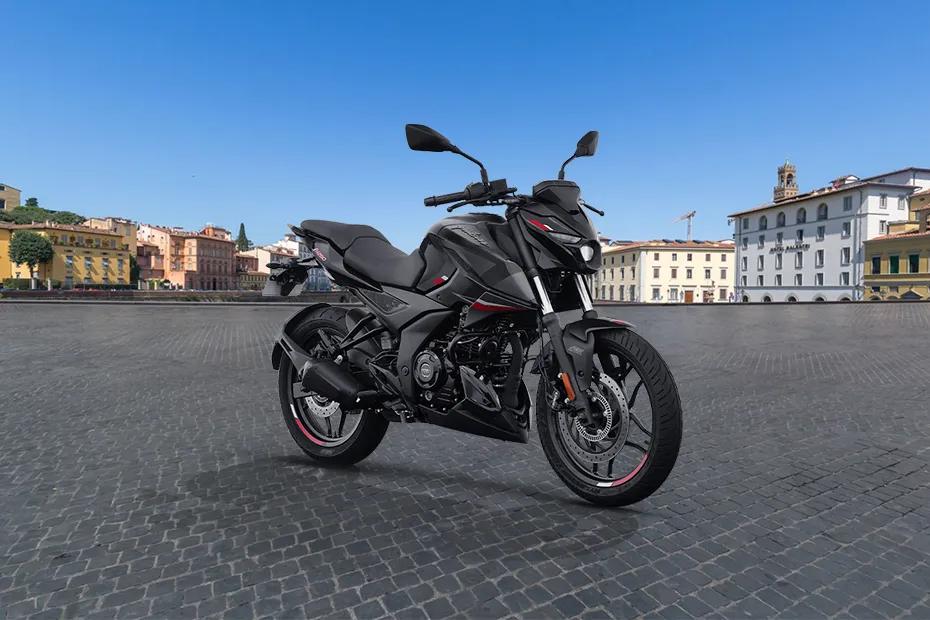
The Bajaj Auto company is set to introduce the latest iteration of the Pulsar N250 on April 10, 2024. A much-awaited motorcycle launch in the Indian market, this model boasts a multitude of upgrades from its previous version. It should be noted that although the motor vehicle comes with various enhancements, there won’t be any modifications in terms of the powertrain.
 Since its initial launch in late 2021, the Bajaj Pulsar N250 has drawn in positive reviews from users. Its forthcoming version exhibits several new features as observed through spy images. High among them is the transition to upside-down forks, substituting the traditional telescopic units at the front. However, the rear persists with the monoshock setup, conforming to the recent Bajaj Pulsar NS200's design.
Enhanced handling and agility are anticipated with the incorporation of these upside-down forks. A remarkable addition in the 2024 model is the digital instrument console, comparable to the design included in the 2024 NS200. This new console will come with Bluetooth connectivity to offer a real-time riding experience to users. Accompanying these features are the likely introductions of new colour schemes, a redesigned switchgear, and body graphics.
Since its initial launch in late 2021, the Bajaj Pulsar N250 has drawn in positive reviews from users. Its forthcoming version exhibits several new features as observed through spy images. High among them is the transition to upside-down forks, substituting the traditional telescopic units at the front. However, the rear persists with the monoshock setup, conforming to the recent Bajaj Pulsar NS200's design.
Enhanced handling and agility are anticipated with the incorporation of these upside-down forks. A remarkable addition in the 2024 model is the digital instrument console, comparable to the design included in the 2024 NS200. This new console will come with Bluetooth connectivity to offer a real-time riding experience to users. Accompanying these features are the likely introductions of new colour schemes, a redesigned switchgear, and body graphics.
 Adding to the motorcycle's value for money appeal, Bajaj plans to include a traction control system and three levels of dual-channel anti-lock braking system (ABS), complete with a switchable rear. Adding to its aesthetic and performance, a broader tyre section will be present at the rear, which will include petal-type disc brakes as well. While these enhancements are note-worthy, the 249 cc single-cylinder oil-cooled Fi engine will remain unchanged.
The power output of this engine will reach a maximum of 24.1 bhp along with 21.5 Nm of peak torque. The engine will operate in conjunction with a five-speed transmission system, with a slipper and assist clutch remaining as standard components. A tubular frame will serve as the motorcycle's backbone, running on 17-inch alloy wheels installed at the front and back. Given these upgrades, a price hike of approximately Rs. 10,000 on the 2024 Bajaj Pulsar N250 is expected.
Adding to the motorcycle's value for money appeal, Bajaj plans to include a traction control system and three levels of dual-channel anti-lock braking system (ABS), complete with a switchable rear. Adding to its aesthetic and performance, a broader tyre section will be present at the rear, which will include petal-type disc brakes as well. While these enhancements are note-worthy, the 249 cc single-cylinder oil-cooled Fi engine will remain unchanged.
The power output of this engine will reach a maximum of 24.1 bhp along with 21.5 Nm of peak torque. The engine will operate in conjunction with a five-speed transmission system, with a slipper and assist clutch remaining as standard components. A tubular frame will serve as the motorcycle's backbone, running on 17-inch alloy wheels installed at the front and back. Given these upgrades, a price hike of approximately Rs. 10,000 on the 2024 Bajaj Pulsar N250 is expected.
 As part of Bajaj's recent scheme to update its Pulsar line-up, the 2024 N250 will feature the new enhancements. Whether similar updates will be applied to the F250 model remains uncertain at this point. Also, this launch will set the stage for the arrival of the brand's first-ever CNG motorcycle, scheduled for later this year, as well as the forthcoming 400 cc flagship Pulsar.
As part of Bajaj's recent scheme to update its Pulsar line-up, the 2024 N250 will feature the new enhancements. Whether similar updates will be applied to the F250 model remains uncertain at this point. Also, this launch will set the stage for the arrival of the brand's first-ever CNG motorcycle, scheduled for later this year, as well as the forthcoming 400 cc flagship Pulsar.
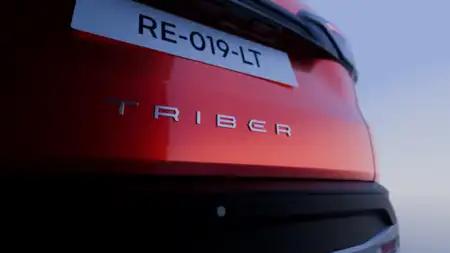
Renault Triber 2025 Facelift Hits Indian Dealerships — Deliveries Start Soon
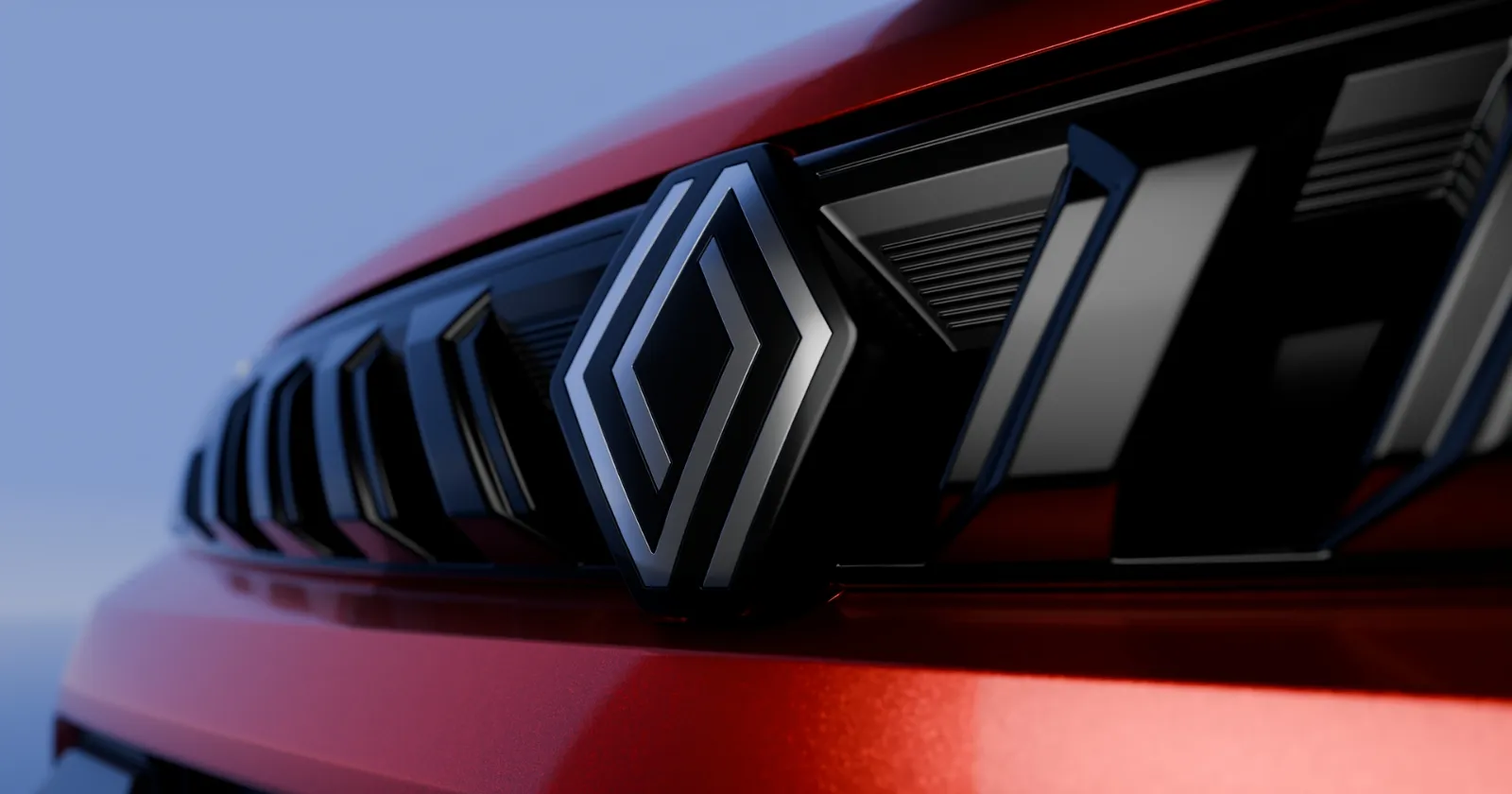 Renault India has officially rolled out the much‑anticipated 2025 Triber facelift, and units are now reaching showrooms across the country, with customer deliveries underway
Redesigned Exterior with Brand New Styling
This refresh brings over 35 upgrades under Renault’s new “renault. rethink.” transformation strategy The highlights include:
New gloss‑black grille with vertical slats
LED projector headlamps with eyebrow-style DRLs and LED fog lamps
Sculpted hood and redesigned bumper with silver accents
Debut of Renault’s new 2D diamond emblem in India
Updated alloy wheels, darkened LED tail‑lamps connected by a gloss-black strip, and revised rear bumper
Cabin Enhancements & Connectivity Revamp
Renault India has officially rolled out the much‑anticipated 2025 Triber facelift, and units are now reaching showrooms across the country, with customer deliveries underway
Redesigned Exterior with Brand New Styling
This refresh brings over 35 upgrades under Renault’s new “renault. rethink.” transformation strategy The highlights include:
New gloss‑black grille with vertical slats
LED projector headlamps with eyebrow-style DRLs and LED fog lamps
Sculpted hood and redesigned bumper with silver accents
Debut of Renault’s new 2D diamond emblem in India
Updated alloy wheels, darkened LED tail‑lamps connected by a gloss-black strip, and revised rear bumper
Cabin Enhancements & Connectivity Revamp
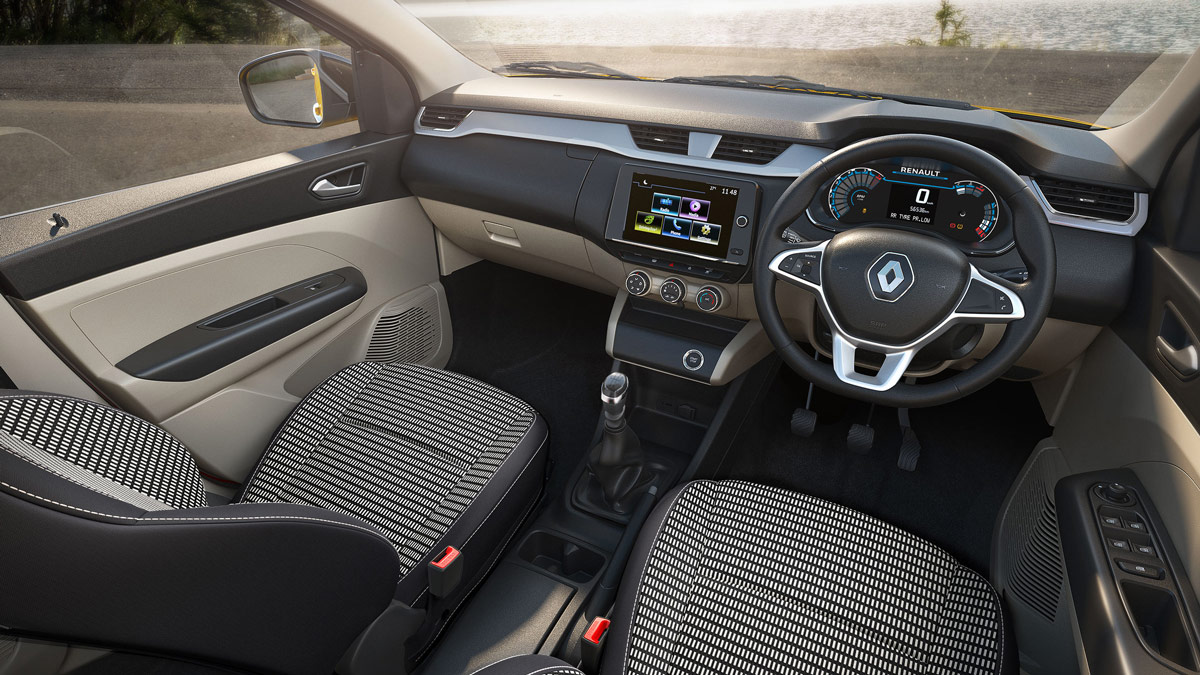 Inside, the Triber sports a refreshed, premium cabin:
Dual-tone dashboard with redesigned layout
Floating 8″ infotainment touchscreen supporting wireless Android Auto and Apple CarPlay
LED instrument cluster, ambient cabin lighting, updated seat upholstery
New blacked-out door handles and modern interior trims
Smart Utility: Seating, Comfort & Space
Staying true to its “rethink space” philosophy, the facelift continues to deliver unmatched modularity:
Easy-Fix third row seats, configurable as 5‑, 6‑ or 7‑seaters
Best-in-class boot space of up to 625 litres in 5-seat mode
Sliding, reclining, folding second row, with dedicated AC vents for rear passengers
Total cabin storage of ~23 litres and roof rails rated for 50 kg load
Safety Upgrades & Segment-first Features
The upgraded Triber now comes standard with:
Six airbags across all variants
21 total safety features, including ESP, TPMS, Brake Assist, EBD, and hill-start assist
Front parking sensors, a segment-first addition from Renault
ISOFIX mounts and rear parking camera with sensors are also included
Powertrain: Familiar Yet Dependable
Inside, the Triber sports a refreshed, premium cabin:
Dual-tone dashboard with redesigned layout
Floating 8″ infotainment touchscreen supporting wireless Android Auto and Apple CarPlay
LED instrument cluster, ambient cabin lighting, updated seat upholstery
New blacked-out door handles and modern interior trims
Smart Utility: Seating, Comfort & Space
Staying true to its “rethink space” philosophy, the facelift continues to deliver unmatched modularity:
Easy-Fix third row seats, configurable as 5‑, 6‑ or 7‑seaters
Best-in-class boot space of up to 625 litres in 5-seat mode
Sliding, reclining, folding second row, with dedicated AC vents for rear passengers
Total cabin storage of ~23 litres and roof rails rated for 50 kg load
Safety Upgrades & Segment-first Features
The upgraded Triber now comes standard with:
Six airbags across all variants
21 total safety features, including ESP, TPMS, Brake Assist, EBD, and hill-start assist
Front parking sensors, a segment-first addition from Renault
ISOFIX mounts and rear parking camera with sensors are also included
Powertrain: Familiar Yet Dependable
 No mechanical changes under the hood:
1.0‑litre naturally aspirated petrol engine, delivering 72 PS and 96 Nm of torque
Gearbox options: 5‑speed manual across all variants; AMT only in top Emotion trim (₹52,000 extra)
Officially CNG retrofit kits available at dealerships under warranty extension plans
Pricing & Variant Lineup
No mechanical changes under the hood:
1.0‑litre naturally aspirated petrol engine, delivering 72 PS and 96 Nm of torque
Gearbox options: 5‑speed manual across all variants; AMT only in top Emotion trim (₹52,000 extra)
Officially CNG retrofit kits available at dealerships under warranty extension plans
Pricing & Variant Lineup
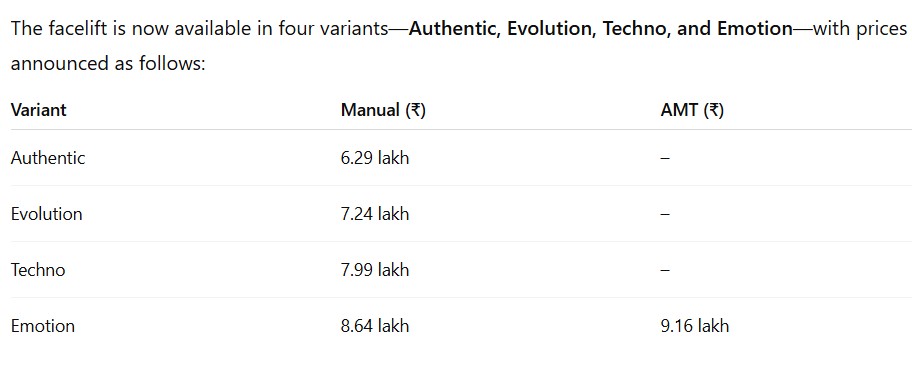 All prices are ex-showroom, and all-India bookings are open across Renault’s dealership network
Strategic Outlook: Product Focus & Exports
This facelift marks the first major product launch under Renault India’s strategy to reinvigorate growth. The refreshed Triber is expected to boost plant utilisation and pave the way for three more product rollouts over the next two years—primarily in larger SUVs and family cars
Model exports are set to restart, with the first shipments heading to South Africa in early August 2025, from Chennai’s Ennore Port
Final Verdict
The 2025 Renault Triber facelift brings a sleek design overhaul, richer features, and enhanced safety to a highly modular and affordable 7-seater. With new branding, modern tech, and improved cabin comfort, it steps up the game in India’s compact MPV segment.
All prices are ex-showroom, and all-India bookings are open across Renault’s dealership network
Strategic Outlook: Product Focus & Exports
This facelift marks the first major product launch under Renault India’s strategy to reinvigorate growth. The refreshed Triber is expected to boost plant utilisation and pave the way for three more product rollouts over the next two years—primarily in larger SUVs and family cars
Model exports are set to restart, with the first shipments heading to South Africa in early August 2025, from Chennai’s Ennore Port
Final Verdict
The 2025 Renault Triber facelift brings a sleek design overhaul, richer features, and enhanced safety to a highly modular and affordable 7-seater. With new branding, modern tech, and improved cabin comfort, it steps up the game in India’s compact MPV segment.
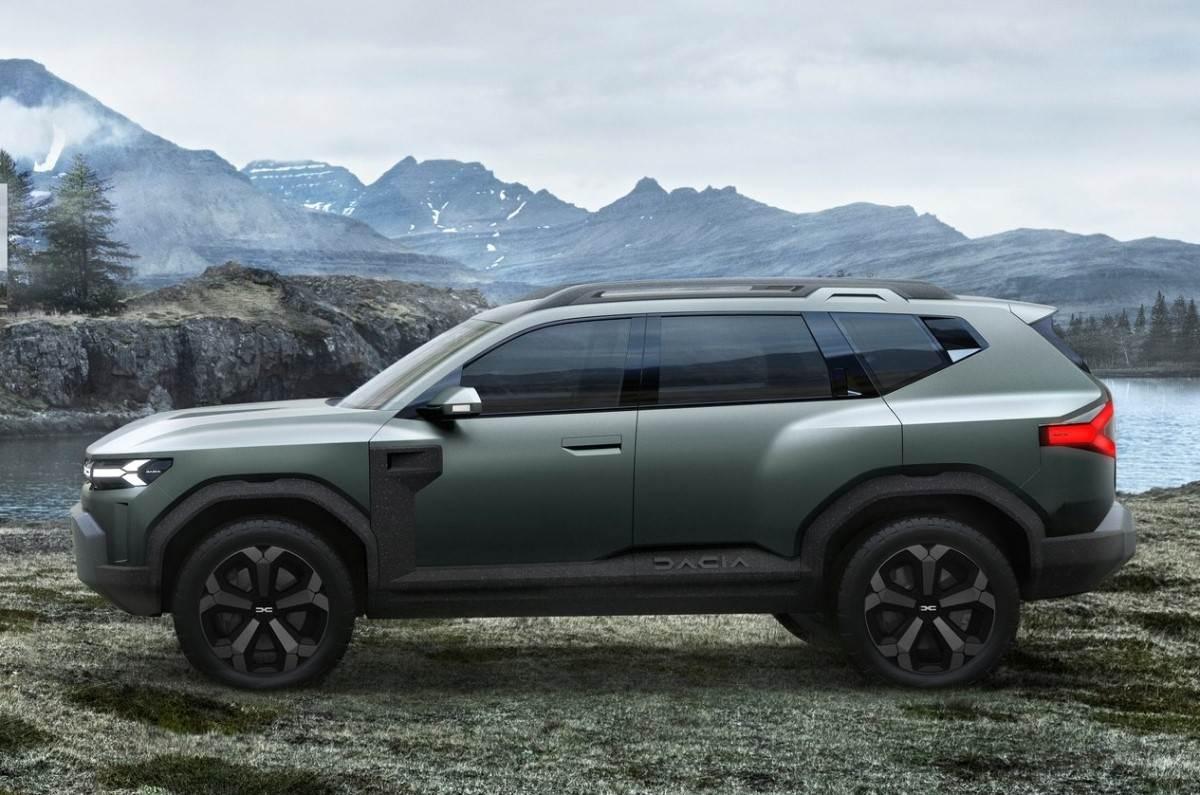
Top 7 Upcoming SUVs in India: Renault Duster, Tata Sierra & Beyond
India’s midsize SUV market is about to get exciting again. Here are the top 7 upcoming SUVs expected between mid‑2025 and early 2026, featuring popular names like Renault Duster, Tata Sierra, Renault Bigster, Tata Harrier EV, Tata Curvv EV, Mahindra XEV 9e, and Maruti e‑Vitara.
Renault Duster (All‑New)
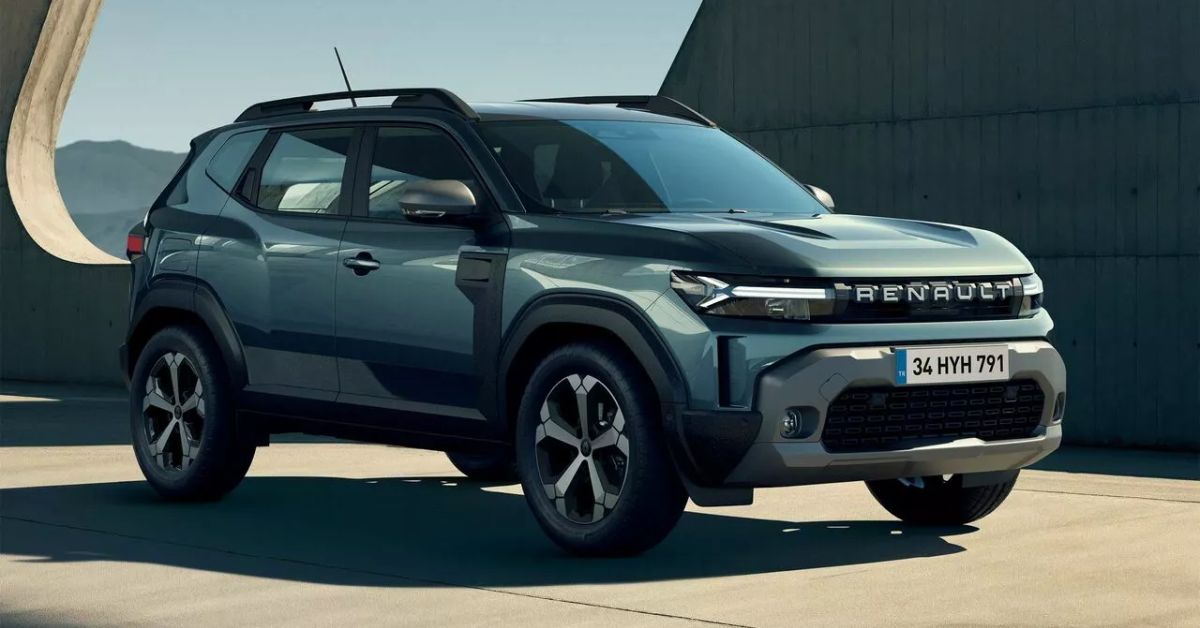 Expected Launch: Mid‑2025 to early 2026
Estimated Price: ₹10–15 lakh (ex‑showroom)
Highlights: Built on CMF‑B+ platform with hybrid petrol options (mild‑hybrid and possibly strong‑hybrid), a rugged yet modern exterior, refreshed interiors with 10 in touchscreen and digital cluster. It aims to challenge Hyundai Creta and Kia Seltos directly
Renault Bigster (7‑Seater)
Expected Launch: Mid‑2025 to early 2026
Estimated Price: ₹10–15 lakh (ex‑showroom)
Highlights: Built on CMF‑B+ platform with hybrid petrol options (mild‑hybrid and possibly strong‑hybrid), a rugged yet modern exterior, refreshed interiors with 10 in touchscreen and digital cluster. It aims to challenge Hyundai Creta and Kia Seltos directly
Renault Bigster (7‑Seater)
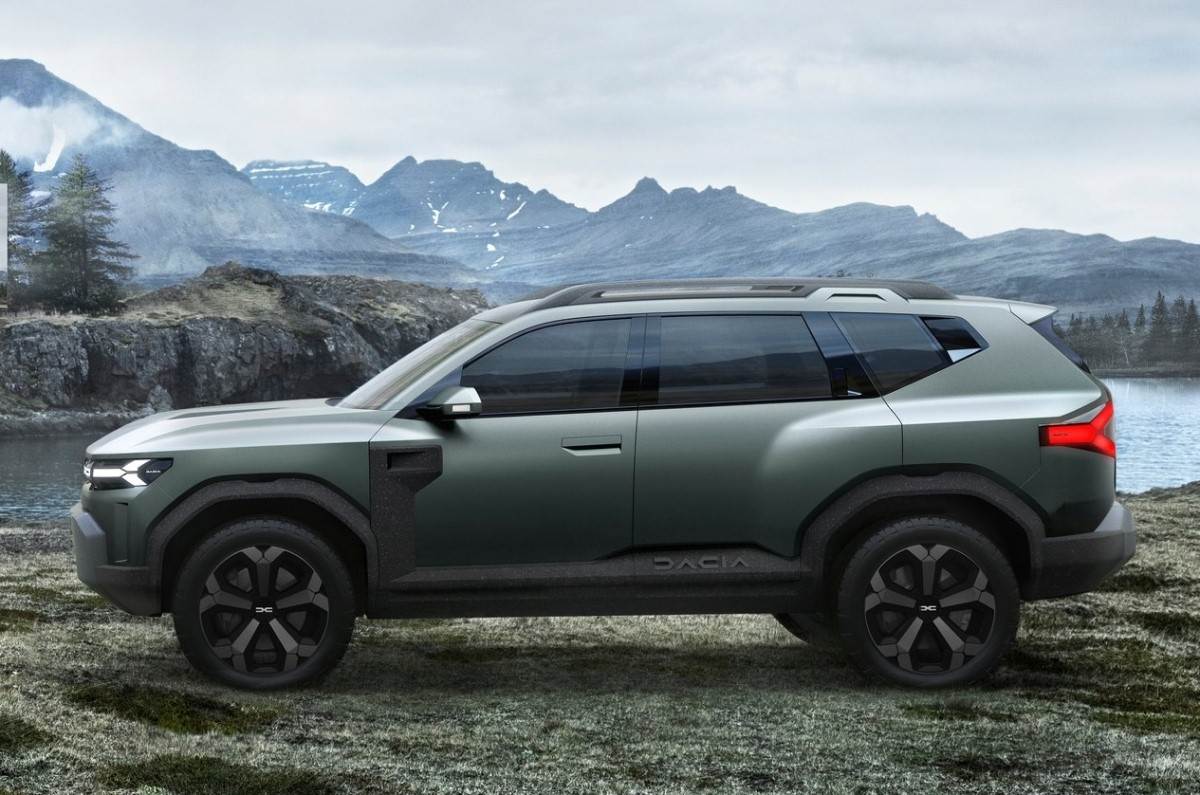 Expected Launch: Shortly after Duster in mid‑2025
Estimated Price: Around ₹12–20 lakh (ex‑showroom)
Highlights: Essentially a seven‑seater version of the Duster, longer by ~227 mm with 3‑row layout, increased boot space (~677 L) and hybrid powertrain options. It competes with Hyundai Alcazar, Mahindra XUV700, Tata Safari
Tata Sierra (ICE and EV)
Expected Launch: Shortly after Duster in mid‑2025
Estimated Price: Around ₹12–20 lakh (ex‑showroom)
Highlights: Essentially a seven‑seater version of the Duster, longer by ~227 mm with 3‑row layout, increased boot space (~677 L) and hybrid powertrain options. It competes with Hyundai Alcazar, Mahindra XUV700, Tata Safari
Tata Sierra (ICE and EV)
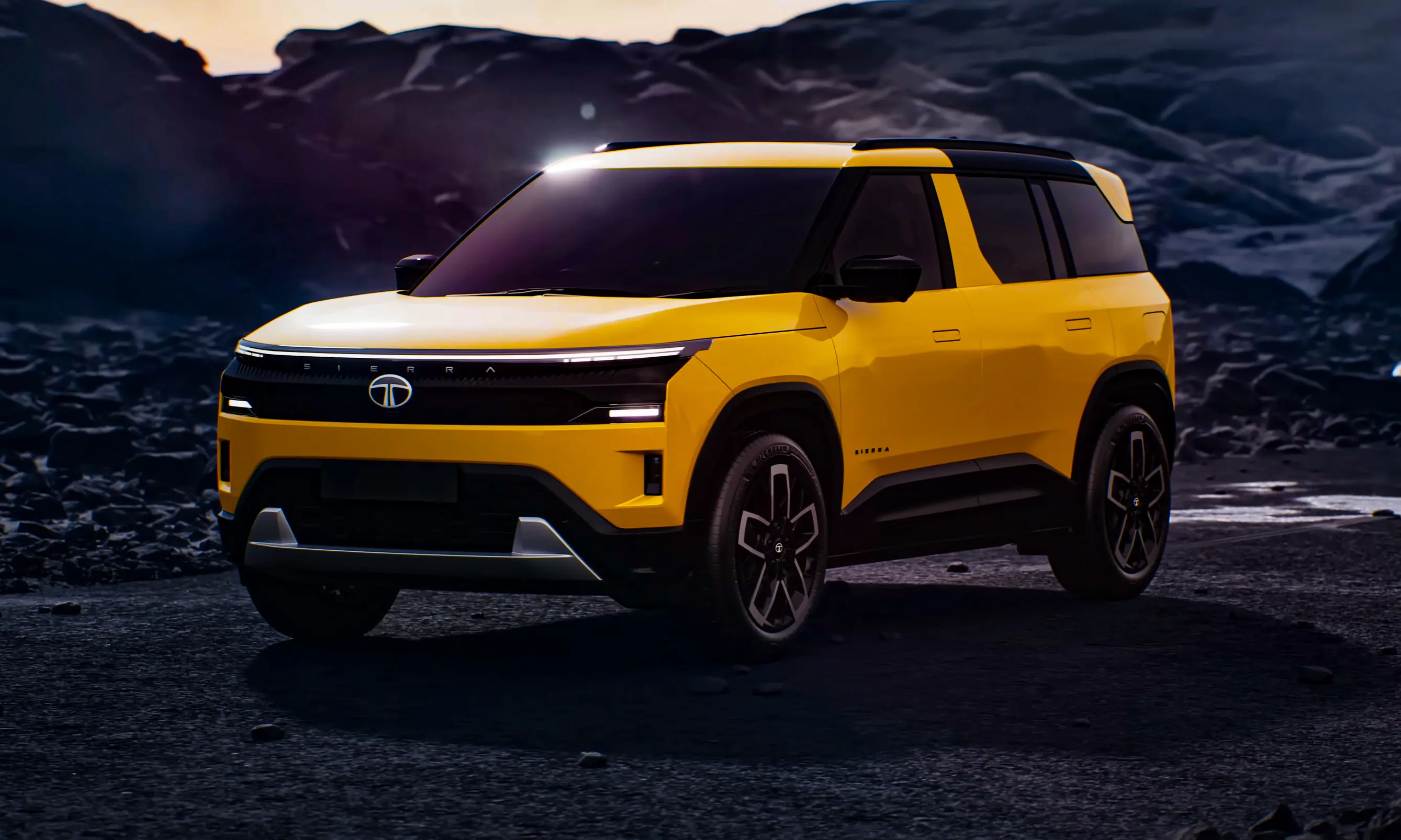 Expected Launch: Q4 2025 (Diwali season)
Price Range: ₹16–22 lakh (ICE variant)
Powertrains: 1.5‑litre turbo petrol (~168 bhp), diesel option expected; EV version built on Acti.ev platform with dual‑motor AWD likely
Features: Level‑2 ADAS, panoramic sunroof, connected tech, lounge seating options, retro‑inspired styling
Tata Harrier EV
Expected Launch: Q4 2025 (Diwali season)
Price Range: ₹16–22 lakh (ICE variant)
Powertrains: 1.5‑litre turbo petrol (~168 bhp), diesel option expected; EV version built on Acti.ev platform with dual‑motor AWD likely
Features: Level‑2 ADAS, panoramic sunroof, connected tech, lounge seating options, retro‑inspired styling
Tata Harrier EV
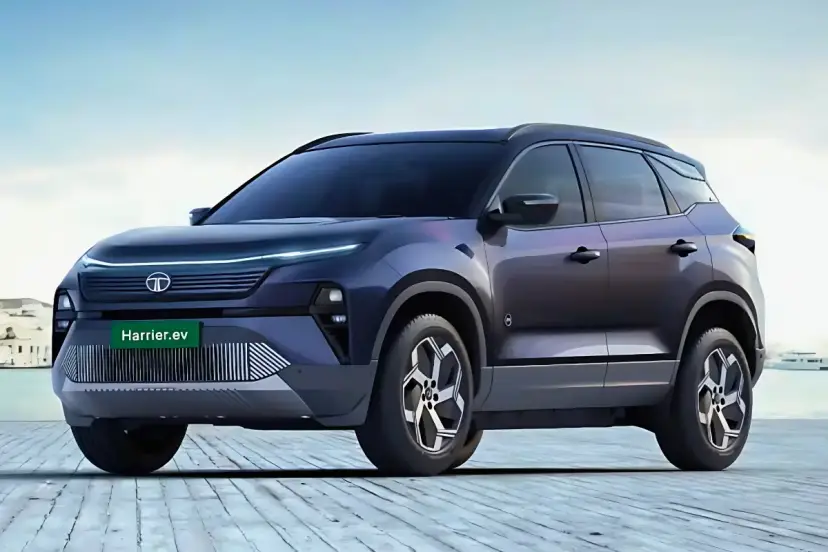 Launched: 3 June 2025, commercial deliveries underway
Price: ~₹21.5 lakh (ex‑showroom)
Specs: 65 kWh or 75 kWh LFP battery, rear‑motor RWD or dual‑motor AWD, range up to 627 km, 0‑100 km/h in ~6.3 sec (Boost Mode), fast‑charging up to 120 kW, V2L/V2V, Level‑2 ADAS, 360° camera, OTA updates
Tata Curvv EV
Launched: 3 June 2025, commercial deliveries underway
Price: ~₹21.5 lakh (ex‑showroom)
Specs: 65 kWh or 75 kWh LFP battery, rear‑motor RWD or dual‑motor AWD, range up to 627 km, 0‑100 km/h in ~6.3 sec (Boost Mode), fast‑charging up to 120 kW, V2L/V2V, Level‑2 ADAS, 360° camera, OTA updates
Tata Curvv EV
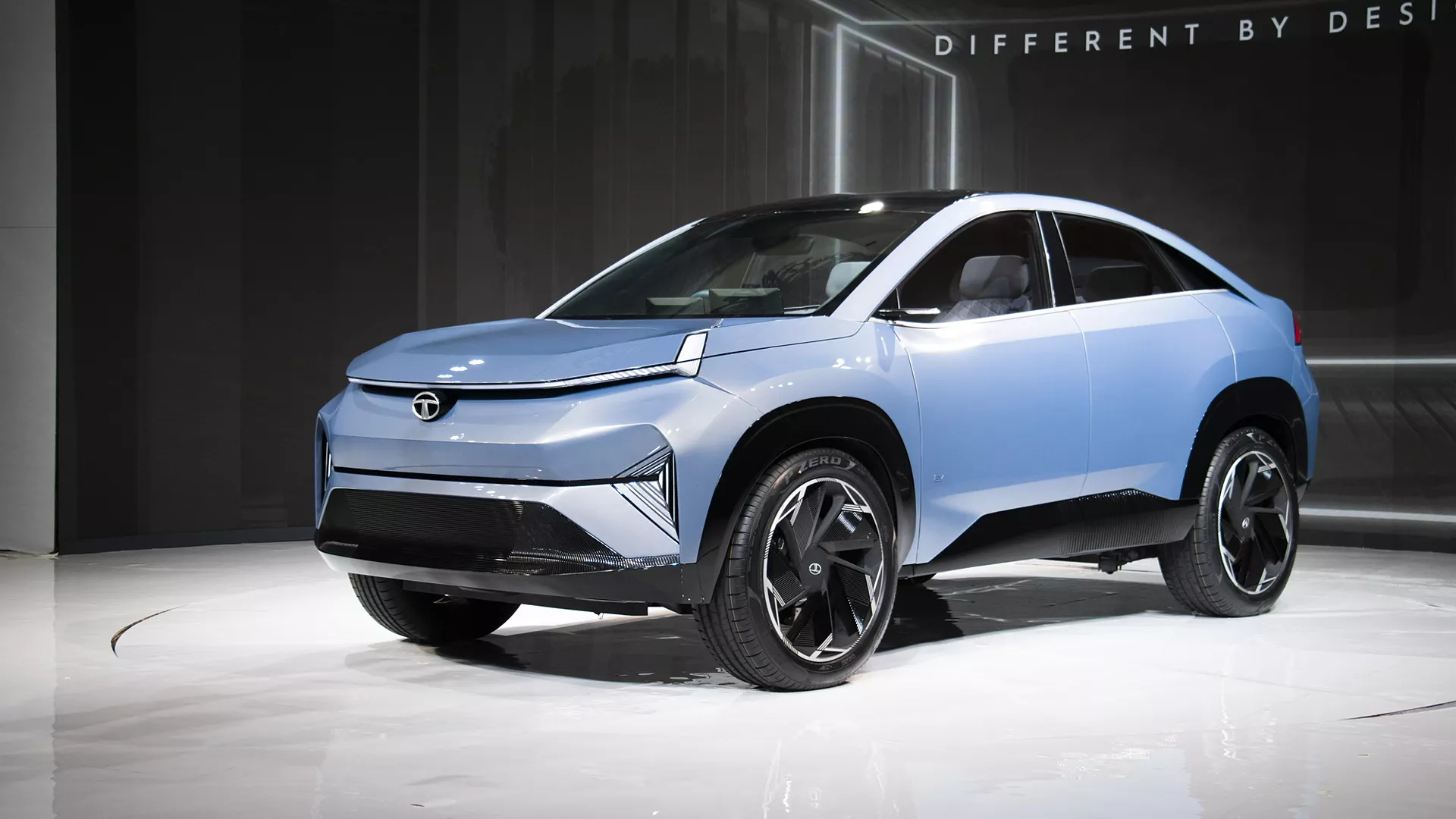 Production: Already launched in 2024; mass production now underway
Features: Coupe‑style compact crossover, 45–55 kWh LFP batteries, range between 500–585 km, fast‑charging support, 12.3″ infotainment and 10.25″ cluster, wireless connectivity, positioned between Nexon EV and Harrier EV
Mahindra XEV 9e
Production: Already launched in 2024; mass production now underway
Features: Coupe‑style compact crossover, 45–55 kWh LFP batteries, range between 500–585 km, fast‑charging support, 12.3″ infotainment and 10.25″ cluster, wireless connectivity, positioned between Nexon EV and Harrier EV
Mahindra XEV 9e
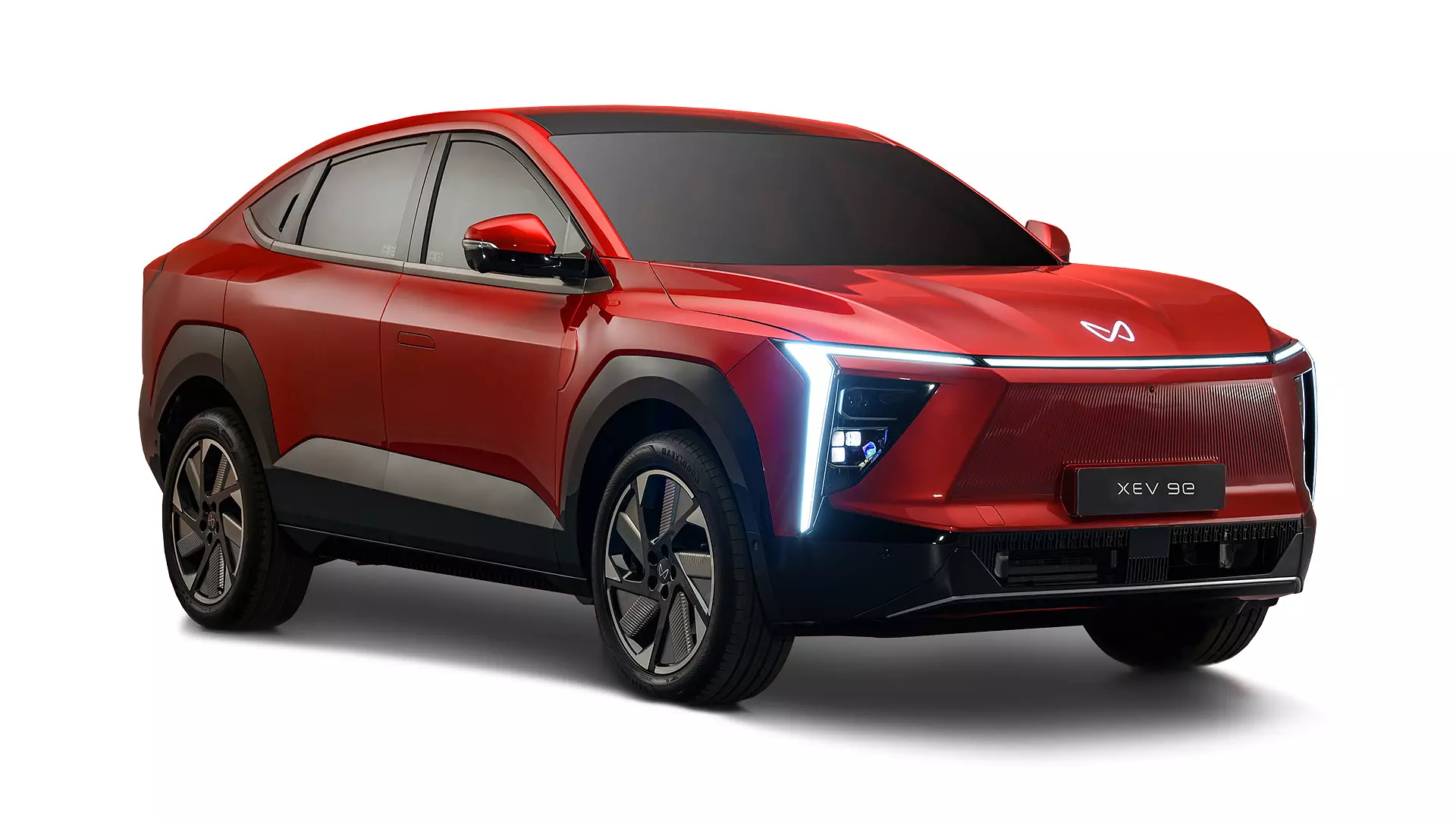 Launch Timeline: Available since early 2025
Price: ₹21.9–30.5 lakh (ex‑showroom)
Specs: Built on INGLO EV platform, coupe‑SUV styling, battery options: 59 kWh (range ~542 km) or 79 kWh (range ~656 km), single‑motor RWD, fast‑charging up to 175 kW, panoramic glass roof, 663 L boot
Maruti e‑Vitara (Upcoming EV SUV)
Launch Timeline: Available since early 2025
Price: ₹21.9–30.5 lakh (ex‑showroom)
Specs: Built on INGLO EV platform, coupe‑SUV styling, battery options: 59 kWh (range ~542 km) or 79 kWh (range ~656 km), single‑motor RWD, fast‑charging up to 175 kW, panoramic glass roof, 663 L boot
Maruti e‑Vitara (Upcoming EV SUV)
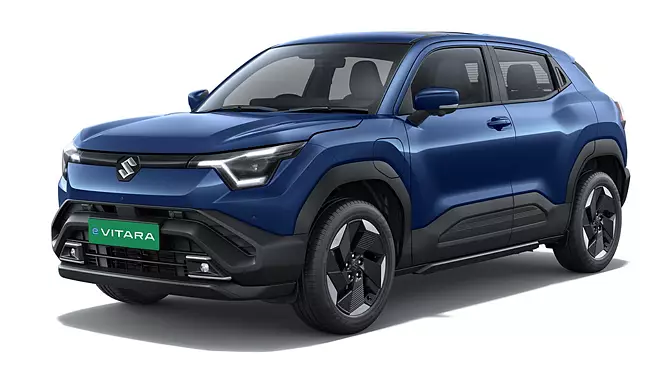 Launch: Expected in early 2025 (March-April) after unveil at Bharat Mobility Show in January 2025
Battery Options: 49 kWh and 61 kWh, with single-motor and AWD dual-motor variants (AllGrip‑e)
Positioning: Maruti’s first EV SUV on Heartect‑e platform, aiming to challenge MG ZS EV, Kia, Hyundai EVs
Why This List Matters
India’s SUV segment is evolving rapidly with hybrid and electric powertrains, new seven-seater options, and stronger feature sets. These upcoming models bring renewed competition to segment leaders like Hyundai Creta, Kia Seltos, MG Astor, Tata Curvv, and Mahindra XUV700.
Renault’s comeback with the Duster and Bigster, Tata’s Sierra and Harrier EV, and Maruti’s first EV SUV, signal major shifts in design, technology, and sustainability.
Stay tuned to CarTopNews for detailed comparisons, launch updates, booking alerts, and full reviews of these high‑profile SUVs coming soon to India.
Launch: Expected in early 2025 (March-April) after unveil at Bharat Mobility Show in January 2025
Battery Options: 49 kWh and 61 kWh, with single-motor and AWD dual-motor variants (AllGrip‑e)
Positioning: Maruti’s first EV SUV on Heartect‑e platform, aiming to challenge MG ZS EV, Kia, Hyundai EVs
Why This List Matters
India’s SUV segment is evolving rapidly with hybrid and electric powertrains, new seven-seater options, and stronger feature sets. These upcoming models bring renewed competition to segment leaders like Hyundai Creta, Kia Seltos, MG Astor, Tata Curvv, and Mahindra XUV700.
Renault’s comeback with the Duster and Bigster, Tata’s Sierra and Harrier EV, and Maruti’s first EV SUV, signal major shifts in design, technology, and sustainability.
Stay tuned to CarTopNews for detailed comparisons, launch updates, booking alerts, and full reviews of these high‑profile SUVs coming soon to India.
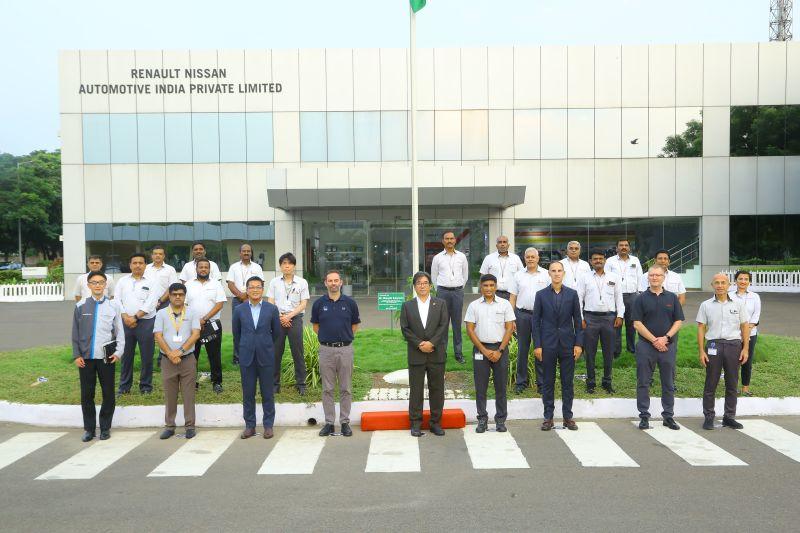
Renault to Acquire Remaining 51% of Renault Nissan Automotive India — CCI Gives Nod
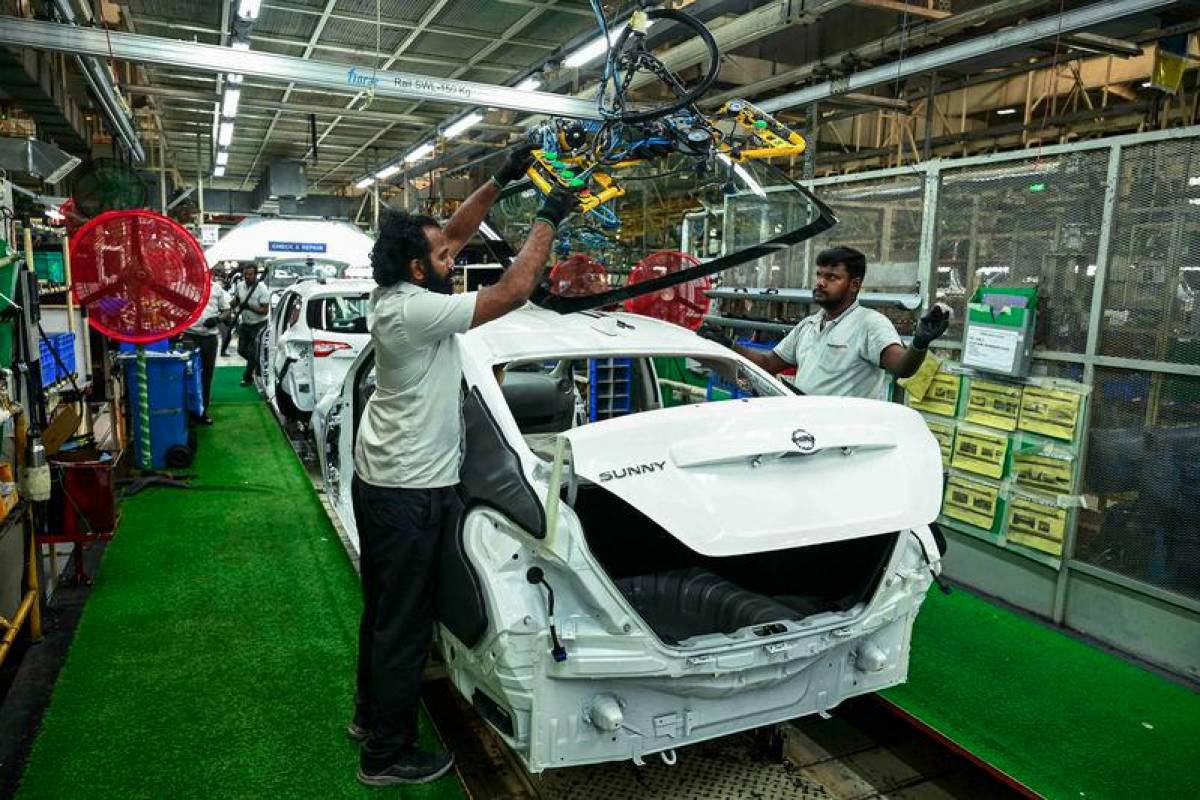 The Competition Commission of India (CCI) has formally approved Renault Group’s proposal to acquire the remaining 51% stake in Renault‑Nissan Automotive India Pvt Ltd (RNAIPL), solidifying Renault’s full ownership of the Chennai-based manufacturing plant
development follows Renault's announcement in March 2025 to buy out Nissan’s shareholding in the joint venture
What This Buyout Means
100% Renault Ownership: Renault Group B.V. and Renault SAS will now hold complete control over their Indian JV, RNAIPL, including the Oragadam Chennai plant
Nissan’s Continued Involvement: Despite divesting its stake, Nissan will continue to source vehicles from RNAIPL for domestic and export markets. Additionally, it will hold a 49% stake in RNTBCI (Renault‑Nissan Technology & Business Centre India), with Renault holding 51%
About the RNAIPL Plant
Established: 2010 in Oragadam, Tamil Nadu.
Capacity: Approx. 480,000 vehicles per annum, shared equally between Renault and Nissan initially; currently operating at ~50% capacity
Historical Stake Split: Renault originally held 30%, with Nissan at 70%. In 2023, Nissan’s stake was revised to 51% under a $600 million investment plan to launch six new models in India
Strategic Motives and Future Outlook
The Competition Commission of India (CCI) has formally approved Renault Group’s proposal to acquire the remaining 51% stake in Renault‑Nissan Automotive India Pvt Ltd (RNAIPL), solidifying Renault’s full ownership of the Chennai-based manufacturing plant
development follows Renault's announcement in March 2025 to buy out Nissan’s shareholding in the joint venture
What This Buyout Means
100% Renault Ownership: Renault Group B.V. and Renault SAS will now hold complete control over their Indian JV, RNAIPL, including the Oragadam Chennai plant
Nissan’s Continued Involvement: Despite divesting its stake, Nissan will continue to source vehicles from RNAIPL for domestic and export markets. Additionally, it will hold a 49% stake in RNTBCI (Renault‑Nissan Technology & Business Centre India), with Renault holding 51%
About the RNAIPL Plant
Established: 2010 in Oragadam, Tamil Nadu.
Capacity: Approx. 480,000 vehicles per annum, shared equally between Renault and Nissan initially; currently operating at ~50% capacity
Historical Stake Split: Renault originally held 30%, with Nissan at 70%. In 2023, Nissan’s stake was revised to 51% under a $600 million investment plan to launch six new models in India
Strategic Motives and Future Outlook
 Objective Details
Ramp-up Output Renault plans to raise plant utilization to 80–100% by introducing more SUVs and exports, backed by a $600 million India investment
Model Expansion Success of the Triber facelift and upcoming SUV launches aim to revive Renault’s market share in India below 1% now, targeting ~5% soon
Alliance Restructuring Globally, Renault and Nissan have reduced cross-shareholding from 15% to 10% to streamline operations; Nissan will no longer invest in Renault's EV arm Ampere
Why It Matters
Marks a decisive shift in Renault’s India strategy—moving from shared control to full operational authority.
Allows Renault greater autonomy in product planning, manufacturing, and export strategies within India.
Embeds resilience in operations, aligning with global restructuring trends and freeing Nissan to focus on sales and service leveraging contract manufacturing.
Final Thoughts
With CCI’s approval today, the acquisition of the 51% stake enables Renault to become the sole owner of RNAIPL and to chart its own path in India—from SUVs and exports to regional strategic growth. Nissan’s continued sourcing agreement ensures operational continuity, while Renault looks to reboot its fortunes in one of the world’s fastest-growing auto markets.
Objective Details
Ramp-up Output Renault plans to raise plant utilization to 80–100% by introducing more SUVs and exports, backed by a $600 million India investment
Model Expansion Success of the Triber facelift and upcoming SUV launches aim to revive Renault’s market share in India below 1% now, targeting ~5% soon
Alliance Restructuring Globally, Renault and Nissan have reduced cross-shareholding from 15% to 10% to streamline operations; Nissan will no longer invest in Renault's EV arm Ampere
Why It Matters
Marks a decisive shift in Renault’s India strategy—moving from shared control to full operational authority.
Allows Renault greater autonomy in product planning, manufacturing, and export strategies within India.
Embeds resilience in operations, aligning with global restructuring trends and freeing Nissan to focus on sales and service leveraging contract manufacturing.
Final Thoughts
With CCI’s approval today, the acquisition of the 51% stake enables Renault to become the sole owner of RNAIPL and to chart its own path in India—from SUVs and exports to regional strategic growth. Nissan’s continued sourcing agreement ensures operational continuity, while Renault looks to reboot its fortunes in one of the world’s fastest-growing auto markets.
Stay tuned to CarTopNews for updates on Renault’s new model launches, export plans, and evolving alliance dynamics.

Royal Enfield Interceptor 650 Transformed Into Adventure-Ready Sidecar Motorcycle
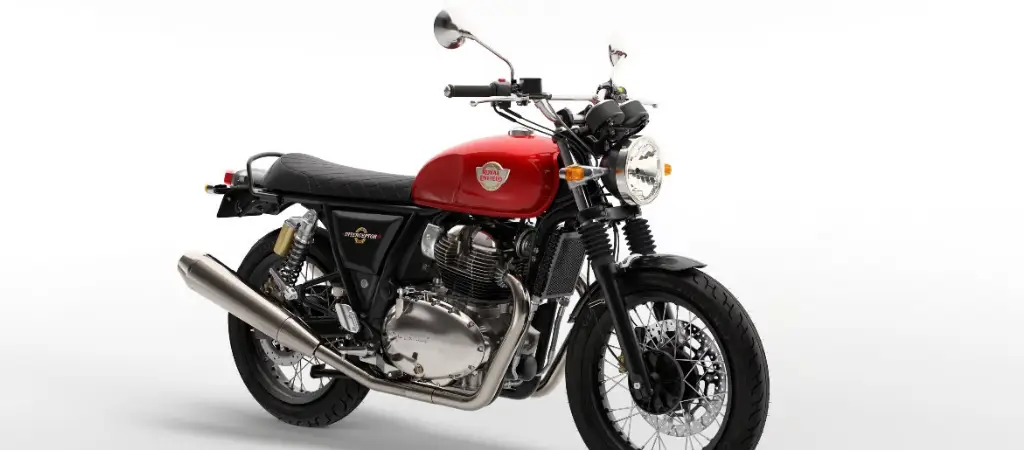 If you’re a fan of motorcycle custom builds, this one’s guaranteed to grab your attention. The iconic Royal Enfield Interceptor 650 has been transformed into a sidecar-equipped adventure machine, blending retro charm with off-road functionality.
This customized Interceptor 650 is designed for those who crave freedom on three wheels, and it’s already creating waves in the motorcycling and adventure touring community.
Customization Highlights: Built for Rugged Terrain and Style
Crafted by Reddy Customs, a Pune-based motorcycle modification workshop, this Interceptor 650 sidecar build maintains the core DNA of Royal Enfield while adding significant utility and aesthetic appeal.
Key Modifications Include:
If you’re a fan of motorcycle custom builds, this one’s guaranteed to grab your attention. The iconic Royal Enfield Interceptor 650 has been transformed into a sidecar-equipped adventure machine, blending retro charm with off-road functionality.
This customized Interceptor 650 is designed for those who crave freedom on three wheels, and it’s already creating waves in the motorcycling and adventure touring community.
Customization Highlights: Built for Rugged Terrain and Style
Crafted by Reddy Customs, a Pune-based motorcycle modification workshop, this Interceptor 650 sidecar build maintains the core DNA of Royal Enfield while adding significant utility and aesthetic appeal.
Key Modifications Include:
 Off-road-ready sidecar with reinforced metal body
Spoked wheels and dual-sport tyres for all-terrain capability
Matte black paint finish with military-inspired detailing
Front crash guard and additional fog lights
Side-mounted jerry can holder and luggage rack
Comfortable cushioned seat for the sidecar passenger
Custom exhaust pipe and handlebar risers for a touring-ready stance
The result? A vintage-meets-modern motorcycle with the spirit of exploration built into every inch.
Why a Sidecar on a Royal Enfield Interceptor 650?
The Interceptor 650 is known for its smooth twin-cylinder engine, excellent power delivery, and retro styling. By adding a sidecar, the builder has enhanced its:
Load capacity for camping or touring gear
Passenger accommodation for couples, kids, or even pets
Stability on rough roads, especially in hilly and remote regions
It transforms the Interceptor into a practical and head-turning adventure motorcycle, ideal for long-distance journeys or weekend escapes.
Engine and Performance Specs (Unchanged)
Off-road-ready sidecar with reinforced metal body
Spoked wheels and dual-sport tyres for all-terrain capability
Matte black paint finish with military-inspired detailing
Front crash guard and additional fog lights
Side-mounted jerry can holder and luggage rack
Comfortable cushioned seat for the sidecar passenger
Custom exhaust pipe and handlebar risers for a touring-ready stance
The result? A vintage-meets-modern motorcycle with the spirit of exploration built into every inch.
Why a Sidecar on a Royal Enfield Interceptor 650?
The Interceptor 650 is known for its smooth twin-cylinder engine, excellent power delivery, and retro styling. By adding a sidecar, the builder has enhanced its:
Load capacity for camping or touring gear
Passenger accommodation for couples, kids, or even pets
Stability on rough roads, especially in hilly and remote regions
It transforms the Interceptor into a practical and head-turning adventure motorcycle, ideal for long-distance journeys or weekend escapes.
Engine and Performance Specs (Unchanged)
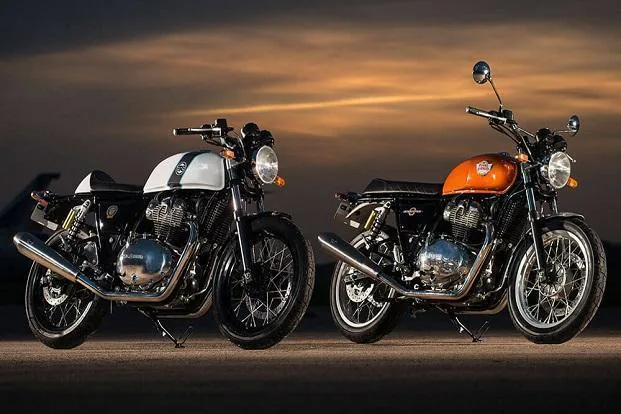 Despite the cosmetic and structural mods, the engine remains stock, keeping the original charm intact:
Engine: 648cc parallel-twin, air/oil-cooled
Power: 47 bhp @ 7,150 rpm
Torque: 52 Nm @ 5,250 rpm
Transmission: 6-speed gearbox with slipper clutch
The setup ensures a reliable and capable ride, even with the extra weight of the sidecar.
A Social Media Sensation Among Biking Enthusiasts
Images of this custom sidecar Interceptor 650 have gone viral on platforms like Instagram and Reddit, drawing praise from motorcycle lovers across India and beyond. It’s not just a custom job — it’s a statement piece for adventure riders who want something truly different.
If you’re looking to stand out at your next biker meetup or ride into the wild with confidence, this build sets a high benchmark.
Final Thoughts
This Royal Enfield Interceptor 650 sidecar build is more than just a motorcycle — it’s an experience machine. Whether you're planning cross-country road trips or simply want to ride something unique, this custom creation blends power, practicality, and unmistakable style.
For more inspiring builds, bike reviews, and customization stories, stay tuned to CarTopNews — your trusted destination for two-wheeler trends in India.
Despite the cosmetic and structural mods, the engine remains stock, keeping the original charm intact:
Engine: 648cc parallel-twin, air/oil-cooled
Power: 47 bhp @ 7,150 rpm
Torque: 52 Nm @ 5,250 rpm
Transmission: 6-speed gearbox with slipper clutch
The setup ensures a reliable and capable ride, even with the extra weight of the sidecar.
A Social Media Sensation Among Biking Enthusiasts
Images of this custom sidecar Interceptor 650 have gone viral on platforms like Instagram and Reddit, drawing praise from motorcycle lovers across India and beyond. It’s not just a custom job — it’s a statement piece for adventure riders who want something truly different.
If you’re looking to stand out at your next biker meetup or ride into the wild with confidence, this build sets a high benchmark.
Final Thoughts
This Royal Enfield Interceptor 650 sidecar build is more than just a motorcycle — it’s an experience machine. Whether you're planning cross-country road trips or simply want to ride something unique, this custom creation blends power, practicality, and unmistakable style.
For more inspiring builds, bike reviews, and customization stories, stay tuned to CarTopNews — your trusted destination for two-wheeler trends in India.

VinFast Launches First EV Dealership in India — Gujarat Gets the First Storefront
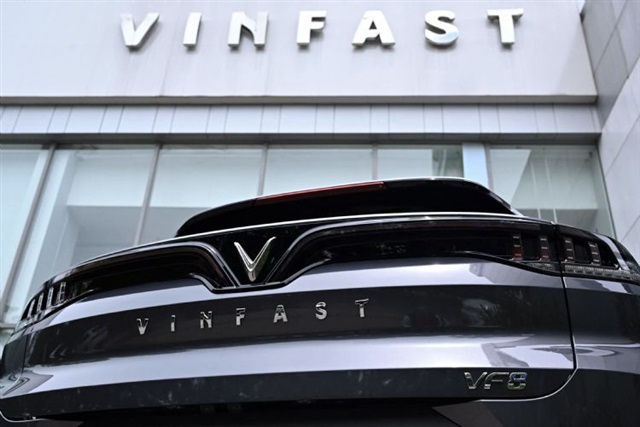 VinFast Auto, the Vietnamese electric vehicle (EV) manufacturer, has officially entered the Indian automotive retail space by inaugurating its first dealership in Ahmedabad, Gujarat. This move signals the beginning of VinFast’s aggressive expansion into one of the fastest-growing EV markets in the world.
With eyes set on 35 dealerships across India by the end of 2025, VinFast’s strategic retail rollout supports its plan to localize production and scale EV adoption in India.
Gujarat Chosen as Launchpad for Indian EV Journey
VinFast’s first Indian dealership is located in Ahmedabad, and it comes shortly after the groundbreaking ceremony of its EV manufacturing plant in Tamil Nadu. The brand’s choice of Gujarat reflects its business focus on Tier 1 and Tier 2 cities with strong EV potential and infrastructure readiness.
This dealership opening marks the beginning of VinFast’s nationwide retail strategy involving both company-owned and dealer-partnered showrooms to ensure wide accessibility and localized support.
VinFast's India Strategy: From Manufacturing to Sales
The Vietnamese automaker has already laid the foundation for its integrated EV ecosystem in India. With plans to invest over $500 million in its Tamil Nadu plant, VinFast aims to:
Manufacture EVs locally
Develop charging infrastructure
Expand dealership and service networks
Launch tailored EV models for Indian buyers
This showroom in Gujarat is the first step in VinFast’s omnichannel retail experience, where physical dealerships will be backed by digital buying platforms, test drive scheduling, and after-sales services.
Upcoming Electric Vehicles from VinFast in India
VinFast Auto, the Vietnamese electric vehicle (EV) manufacturer, has officially entered the Indian automotive retail space by inaugurating its first dealership in Ahmedabad, Gujarat. This move signals the beginning of VinFast’s aggressive expansion into one of the fastest-growing EV markets in the world.
With eyes set on 35 dealerships across India by the end of 2025, VinFast’s strategic retail rollout supports its plan to localize production and scale EV adoption in India.
Gujarat Chosen as Launchpad for Indian EV Journey
VinFast’s first Indian dealership is located in Ahmedabad, and it comes shortly after the groundbreaking ceremony of its EV manufacturing plant in Tamil Nadu. The brand’s choice of Gujarat reflects its business focus on Tier 1 and Tier 2 cities with strong EV potential and infrastructure readiness.
This dealership opening marks the beginning of VinFast’s nationwide retail strategy involving both company-owned and dealer-partnered showrooms to ensure wide accessibility and localized support.
VinFast's India Strategy: From Manufacturing to Sales
The Vietnamese automaker has already laid the foundation for its integrated EV ecosystem in India. With plans to invest over $500 million in its Tamil Nadu plant, VinFast aims to:
Manufacture EVs locally
Develop charging infrastructure
Expand dealership and service networks
Launch tailored EV models for Indian buyers
This showroom in Gujarat is the first step in VinFast’s omnichannel retail experience, where physical dealerships will be backed by digital buying platforms, test drive scheduling, and after-sales services.
Upcoming Electric Vehicles from VinFast in India
 While VinFast hasn’t announced the exact models for the Indian market, its global EV portfolio includes:
VinFast VF e34 – Compact electric SUV
VinFast VF 6 – Mid-size crossover
VinFast VF 8 and VF 9 – Premium electric SUVs
These models are expected to hit the Indian market in phases, aligning with VinFast's production schedule in Tamil Nadu, beginning in late 2025 or early 2026.
VinFast’s EV Roadmap for India
VinFast's plan to open 35 showrooms includes key metro cities and emerging EV hubs. Cities like Delhi, Mumbai, Bengaluru, Hyderabad, Pune, and Chennai are high on the brand’s priority list.
In addition to showrooms, VinFast is working on:
Setting up charging infrastructure in partnership with local firms
Creating after-sales and service centers across zones
Launching affordable EVs suited to Indian roads and customer expectations
Final Thoughts
With the launch of its first dealership in Gujarat, VinFast has officially put its foot on Indian soil — not just as a foreign EV maker, but as a serious long-term player. By combining local manufacturing with an expanding retail footprint, VinFast aims to redefine India’s electric vehicle market with technology, design, and accessibility.
Stay updated on the latest EV launches, dealership openings, and EV policies — only on CarTopNews, your daily source for automotive insights.
While VinFast hasn’t announced the exact models for the Indian market, its global EV portfolio includes:
VinFast VF e34 – Compact electric SUV
VinFast VF 6 – Mid-size crossover
VinFast VF 8 and VF 9 – Premium electric SUVs
These models are expected to hit the Indian market in phases, aligning with VinFast's production schedule in Tamil Nadu, beginning in late 2025 or early 2026.
VinFast’s EV Roadmap for India
VinFast's plan to open 35 showrooms includes key metro cities and emerging EV hubs. Cities like Delhi, Mumbai, Bengaluru, Hyderabad, Pune, and Chennai are high on the brand’s priority list.
In addition to showrooms, VinFast is working on:
Setting up charging infrastructure in partnership with local firms
Creating after-sales and service centers across zones
Launching affordable EVs suited to Indian roads and customer expectations
Final Thoughts
With the launch of its first dealership in Gujarat, VinFast has officially put its foot on Indian soil — not just as a foreign EV maker, but as a serious long-term player. By combining local manufacturing with an expanding retail footprint, VinFast aims to redefine India’s electric vehicle market with technology, design, and accessibility.
Stay updated on the latest EV launches, dealership openings, and EV policies — only on CarTopNews, your daily source for automotive insights.
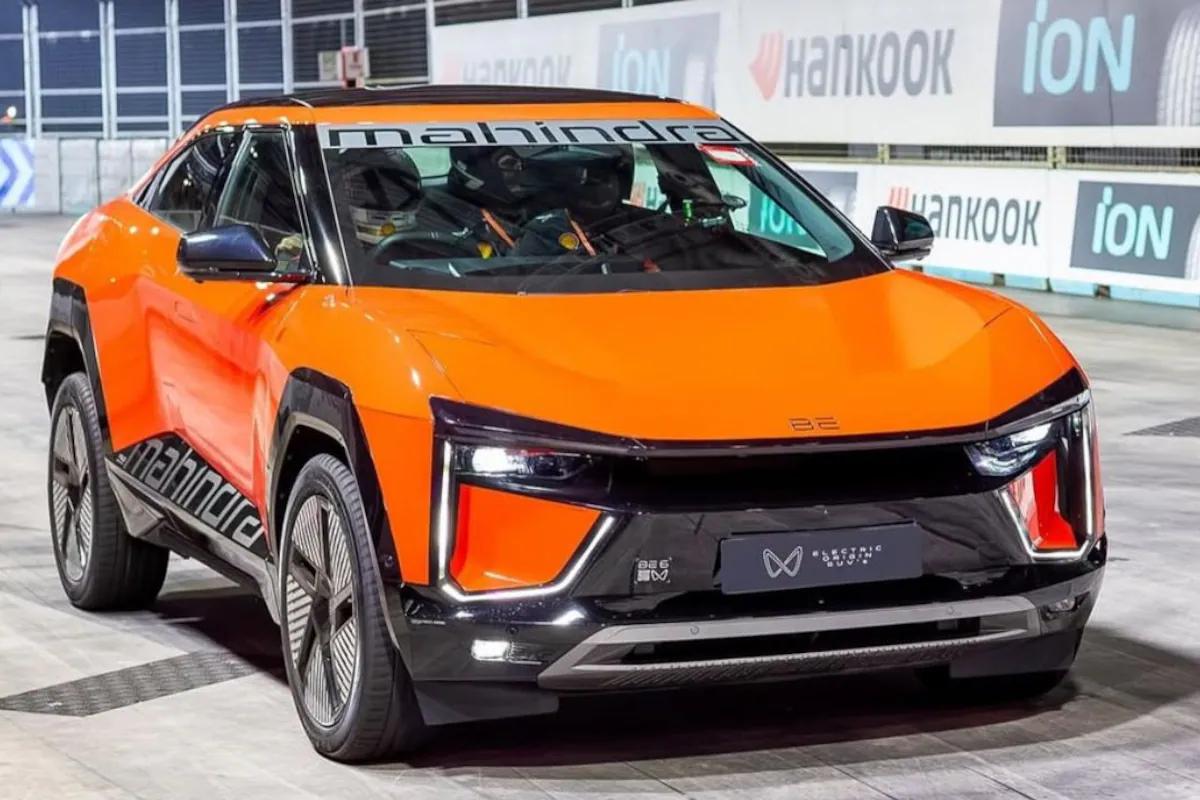
Mahindra BE.06 Becomes First Made-in-India eSUV to Conquer London E-Prix Circuit
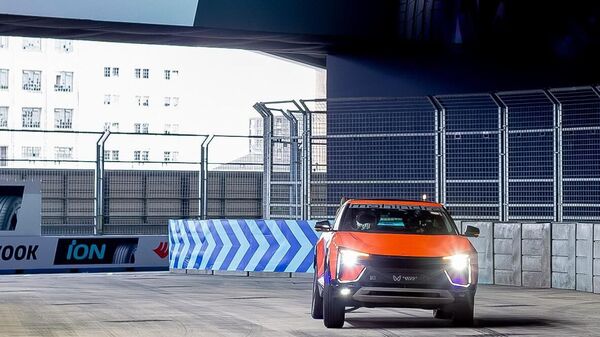 In a landmark moment for Indian automotive innovation, Mahindra's all-electric BE.06 SUV has become the first Indian-manufactured electric SUV to run on the iconic Formula E London E-Prix circuit. This bold move by Mahindra Auto signifies India’s rising prominence in the global EV landscape.
Global EV Debut with Indian Engineering
The Mahindra BE.06, part of the brand’s Born Electric (BE) lineup, was showcased at the Formula E event held in London. This exclusive preview not only highlights Mahindra's engineering prowess but also positions India as a serious contender in electric vehicle innovation on a global scale.
The BE.06 took to the London E-Prix track, home to some of the most cutting-edge electric motorsport events in the world. This historic achievement reflects the vehicle’s performance-ready design, as well as the confidence Mahindra has in its EV platform.
Striking Coupe-Inspired SUV Design
The Mahindra BE.06 features a futuristic coupe-SUV design, characterized by sleek LED lighting, bold body lines, and an aerodynamic silhouette. Built on the INGLO platform (a modular EV platform co-developed with Volkswagen), the BE.06 is expected to offer advanced performance, high-range battery capabilities, and state-of-the-art tech integration.
Some visual highlights of the BE.06 include:
Signature C-shaped LED headlamps
Flush door handles
Prominent wheel arches
Glossy aerodynamic finish
Stylish rear light bar
This design isn’t just about aesthetics — it's engineered for performance and efficiency, aligning with the global trend of high-performance electric coupes.
Tech-Packed, Future-Ready Platform
In a landmark moment for Indian automotive innovation, Mahindra's all-electric BE.06 SUV has become the first Indian-manufactured electric SUV to run on the iconic Formula E London E-Prix circuit. This bold move by Mahindra Auto signifies India’s rising prominence in the global EV landscape.
Global EV Debut with Indian Engineering
The Mahindra BE.06, part of the brand’s Born Electric (BE) lineup, was showcased at the Formula E event held in London. This exclusive preview not only highlights Mahindra's engineering prowess but also positions India as a serious contender in electric vehicle innovation on a global scale.
The BE.06 took to the London E-Prix track, home to some of the most cutting-edge electric motorsport events in the world. This historic achievement reflects the vehicle’s performance-ready design, as well as the confidence Mahindra has in its EV platform.
Striking Coupe-Inspired SUV Design
The Mahindra BE.06 features a futuristic coupe-SUV design, characterized by sleek LED lighting, bold body lines, and an aerodynamic silhouette. Built on the INGLO platform (a modular EV platform co-developed with Volkswagen), the BE.06 is expected to offer advanced performance, high-range battery capabilities, and state-of-the-art tech integration.
Some visual highlights of the BE.06 include:
Signature C-shaped LED headlamps
Flush door handles
Prominent wheel arches
Glossy aerodynamic finish
Stylish rear light bar
This design isn’t just about aesthetics — it's engineered for performance and efficiency, aligning with the global trend of high-performance electric coupes.
Tech-Packed, Future-Ready Platform
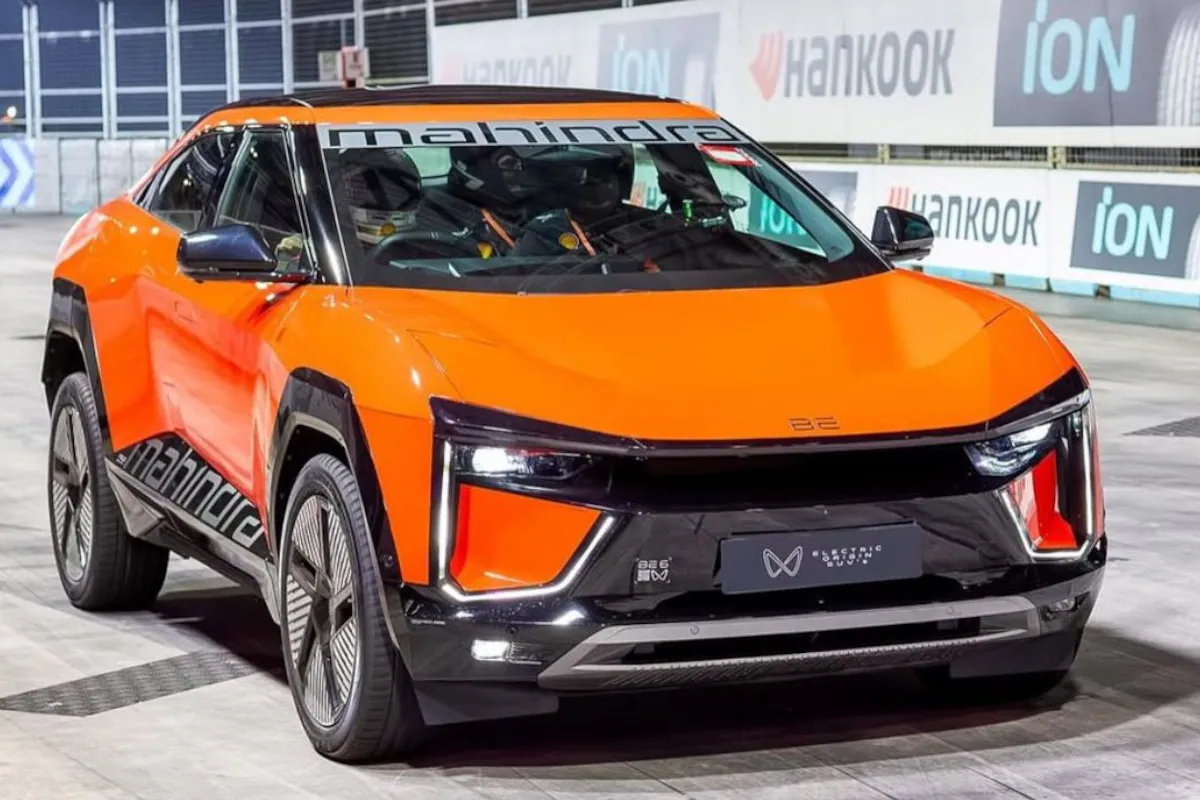 Mahindra’s BE range, including the BE.06, is underpinned by the INGLO platform, which supports:
Fast-charging capabilities
Up to 80 kWh battery packs
ADAS (Advanced Driver Assistance Systems)
Over-the-air (OTA) updates
Next-gen infotainment and connectivity features
The BE.06 is expected to come in both RWD and AWD configurations, with estimated ranges of 450–500 km on a single charge, depending on the variant.
Launch Timeline in India
Mahindra plans to launch the BE.06 in the second half of 2025, making it a key pillar in its Born Electric roadmap. It will be one of five all-new electric SUVs based on the INGLO platform, including the BE.05, BE.07, BE.09, and XUV.e variants.
This major milestone at the London E-Prix not only boosts Mahindra’s credibility in EV motorsports but also showcases what the Indian automotive sector is capable of delivering to a global audience.
Final Thoughts
The Mahindra BE.06 making its presence felt on the Formula E London track is more than just a PR moment — it’s a signal of what’s to come. With its bold design, futuristic platform, and global ambitions, Mahindra is charging ahead into the future of electric mobility.
Stay tuned with CarTopNews for more updates on Mahindra’s BE lineup, EV industry trends, and future car launches.
Mahindra’s BE range, including the BE.06, is underpinned by the INGLO platform, which supports:
Fast-charging capabilities
Up to 80 kWh battery packs
ADAS (Advanced Driver Assistance Systems)
Over-the-air (OTA) updates
Next-gen infotainment and connectivity features
The BE.06 is expected to come in both RWD and AWD configurations, with estimated ranges of 450–500 km on a single charge, depending on the variant.
Launch Timeline in India
Mahindra plans to launch the BE.06 in the second half of 2025, making it a key pillar in its Born Electric roadmap. It will be one of five all-new electric SUVs based on the INGLO platform, including the BE.05, BE.07, BE.09, and XUV.e variants.
This major milestone at the London E-Prix not only boosts Mahindra’s credibility in EV motorsports but also showcases what the Indian automotive sector is capable of delivering to a global audience.
Final Thoughts
The Mahindra BE.06 making its presence felt on the Formula E London track is more than just a PR moment — it’s a signal of what’s to come. With its bold design, futuristic platform, and global ambitions, Mahindra is charging ahead into the future of electric mobility.
Stay tuned with CarTopNews for more updates on Mahindra’s BE lineup, EV industry trends, and future car launches.
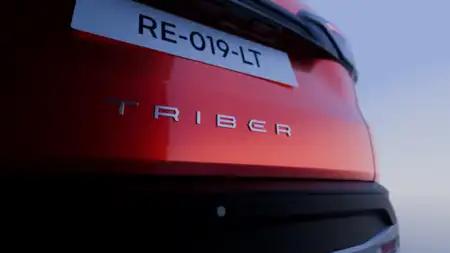
Renault Triber Facelift to Debut on 23 July – What to Expect
Renault is set to officially reveal the refreshed 2025 Triber MPV in India on 23 July, marking the first major update since its 2019 launch
Exterior Upgrades for a Modern Look
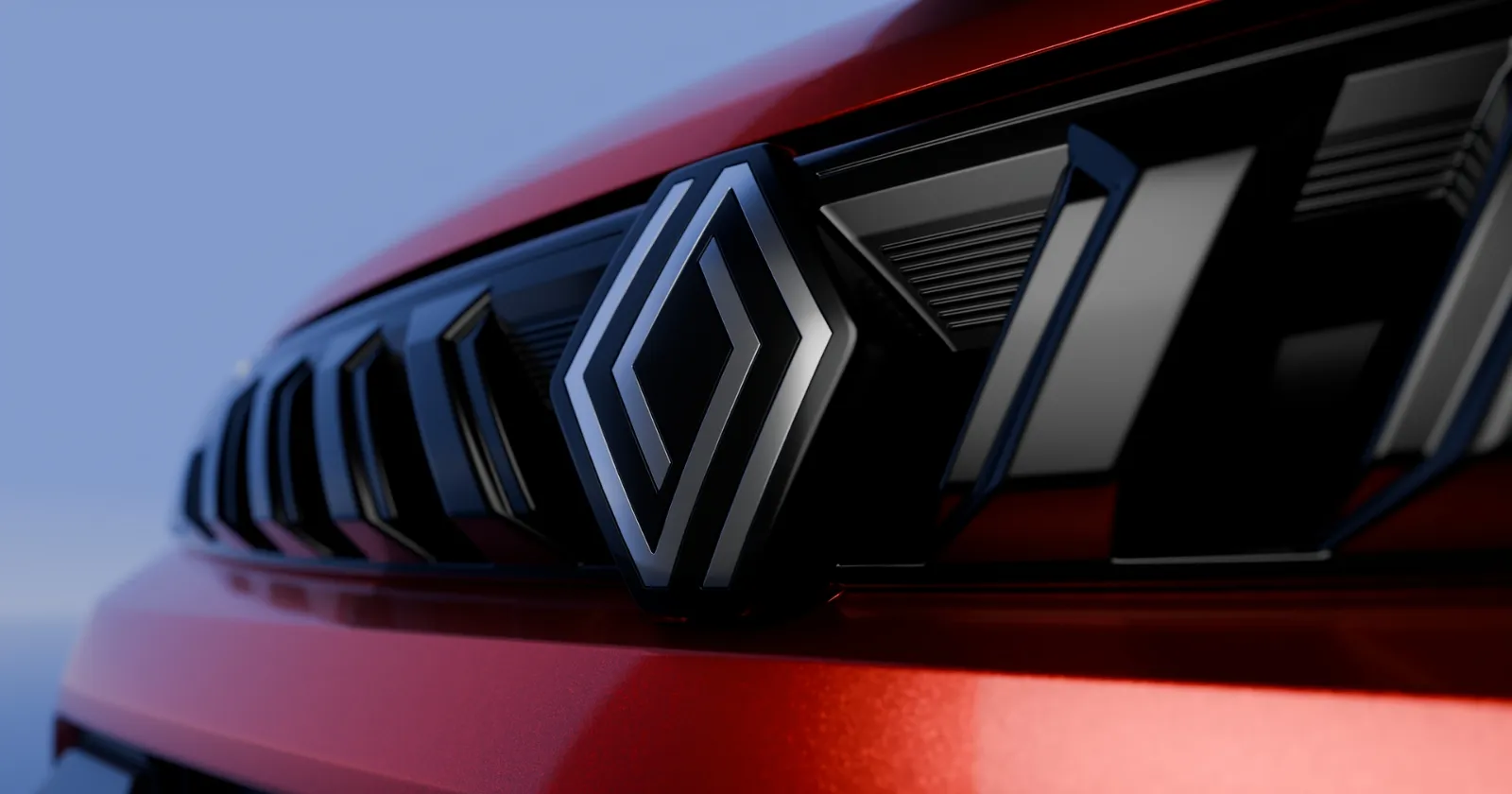 Redesigned fascia with sharper LED headlamps and eyebrow-style DRLs extending across the bonnet’s edge
All-new grille featuring a darker palette and Renault’s updated logo, complemented by larger air intakes and repositioned fog lamps
Profile remains intact, but adds new alloy wheels or stylized covers; stealthy fog-lights and horizontal air-dam trims add flair
**Rear styling tweaked **with clear-lens wraparound LED tail-lights, subtle chrome blade in bumper, and integrated parking sensors
Interior & Tech: Subtle Upgrades
Redesigned fascia with sharper LED headlamps and eyebrow-style DRLs extending across the bonnet’s edge
All-new grille featuring a darker palette and Renault’s updated logo, complemented by larger air intakes and repositioned fog lamps
Profile remains intact, but adds new alloy wheels or stylized covers; stealthy fog-lights and horizontal air-dam trims add flair
**Rear styling tweaked **with clear-lens wraparound LED tail-lights, subtle chrome blade in bumper, and integrated parking sensors
Interior & Tech: Subtle Upgrades
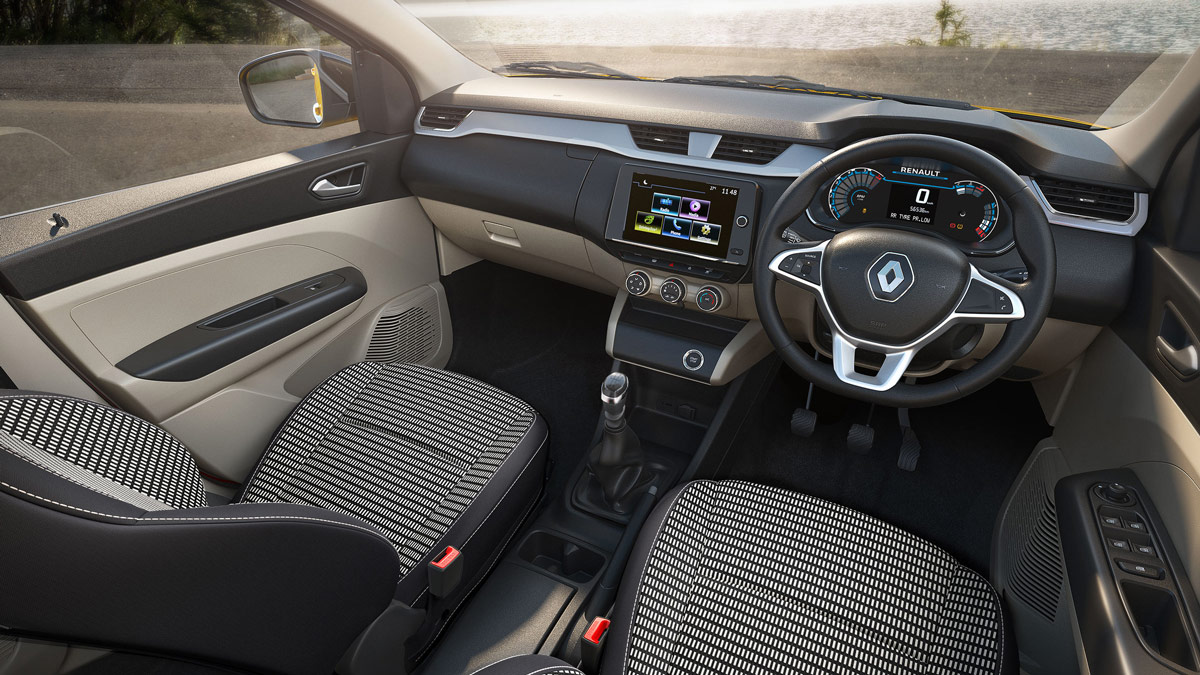 Refreshed cabin color themes, improved soft-touch materials, new seat upholstery trims and premium textures
Likely to feature an 8-inch touchscreen, optional digital instrument cluster, and feature enhancements such as rain-sensing wipers, auto-headlamps, auto-dimming IRVM, and 360° camera
Powertrain Options Stay Same
Retains the 1.0-litre naturally aspirated petrol engine (72 PS/96 Nm) in both 5-speed manual and 5-speed AMT variants
No turbo engine confirmed as part of this update.
What’s Next
Refreshed cabin color themes, improved soft-touch materials, new seat upholstery trims and premium textures
Likely to feature an 8-inch touchscreen, optional digital instrument cluster, and feature enhancements such as rain-sensing wipers, auto-headlamps, auto-dimming IRVM, and 360° camera
Powertrain Options Stay Same
Retains the 1.0-litre naturally aspirated petrol engine (72 PS/96 Nm) in both 5-speed manual and 5-speed AMT variants
No turbo engine confirmed as part of this update.
What’s Next
 Official launch: 23 July 2025
Pricing: Minor hike expected, but Triber to remain India’s most affordable 7-seater MPV (₹6–10 lakh)
Availability: Deliveries to begin soon after launch.
Final Take for CarTopNews
The Renault Triber facelift brings a fresh, sharper design, upgraded visuals, and added features to its cabin—while retaining affordability and practicality. With a new grille, LED lighting, and cabin refinement, this update injects energy into a compact 7‑seater that continues to lead its niche.
Official launch: 23 July 2025
Pricing: Minor hike expected, but Triber to remain India’s most affordable 7-seater MPV (₹6–10 lakh)
Availability: Deliveries to begin soon after launch.
Final Take for CarTopNews
The Renault Triber facelift brings a fresh, sharper design, upgraded visuals, and added features to its cabin—while retaining affordability and practicality. With a new grille, LED lighting, and cabin refinement, this update injects energy into a compact 7‑seater that continues to lead its niche.
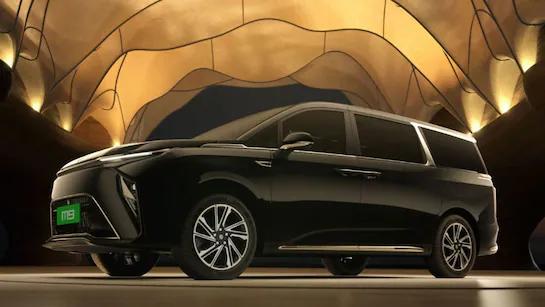
MG Launches M9 “Presidential Limo” – Luxury Electric MPV at ₹69.9 Lakh
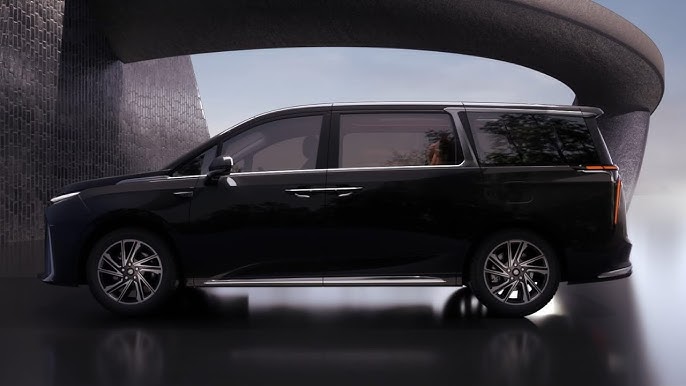 JSW MG Motor India has unveiled the MG M9 Presidential Limo, a premium electric MPV under its MG Select sub-brand, priced at ₹69.90 Lakh (ex-showroom). Bookings are open now—with deliveries slated to begin on 10 August 2025 via MG Select outlets
Powertrain & Range
A 90 kWh NMC battery powers a front-wheel motor outputting 245 PS and 350 Nm torque, delivering a claimed range of 548 km on MIDC cycle
Comes with an 11 kW AC wall charger, 3.3 kW portable charger, and DC fast charging capability (30–80% in ~30–90 minutes depending on charger)
Lifetime warranty on the high-voltage battery and a 3-year/unlimited-km vehicle warranty guarantee peace of mind
Opulent Interiors & Comfort
JSW MG Motor India has unveiled the MG M9 Presidential Limo, a premium electric MPV under its MG Select sub-brand, priced at ₹69.90 Lakh (ex-showroom). Bookings are open now—with deliveries slated to begin on 10 August 2025 via MG Select outlets
Powertrain & Range
A 90 kWh NMC battery powers a front-wheel motor outputting 245 PS and 350 Nm torque, delivering a claimed range of 548 km on MIDC cycle
Comes with an 11 kW AC wall charger, 3.3 kW portable charger, and DC fast charging capability (30–80% in ~30–90 minutes depending on charger)
Lifetime warranty on the high-voltage battery and a 3-year/unlimited-km vehicle warranty guarantee peace of mind
Opulent Interiors & Comfort
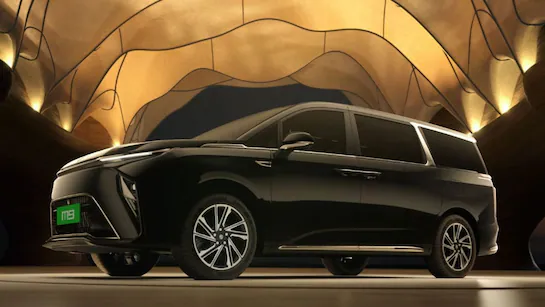 Cabin features “Presidential” middle row seats with 16-way adjustment, ventilation, heating, massage (8 modes), power headrests, and powered ottomans—controlled via an Intelligent Armrest touchscreen
Additional luxury touches include dual yacht-style sunroof, 64‑colour ambient lighting, Cognac brown leather & suede, a 13‑speaker JBL audio system, and 1720 L bootspace + 55 L frunk
Exterior & Safety Features
Exterior highlights: split LED DRLs, trapezoidal mesh grille, waterfall LED tail-light bar, 19″ ContiSeal™ self-sealing tyres, and heated ORVMs
Safety tech: built on high-strength steel structure, features 7+ airbags, 5‑star Euro NCAP & ANCAP ratings, Level 2 ADAS, driver monitoring, ESC, 360° camera, and seatbelt
warnings
Positioning & Competitors
Cabin features “Presidential” middle row seats with 16-way adjustment, ventilation, heating, massage (8 modes), power headrests, and powered ottomans—controlled via an Intelligent Armrest touchscreen
Additional luxury touches include dual yacht-style sunroof, 64‑colour ambient lighting, Cognac brown leather & suede, a 13‑speaker JBL audio system, and 1720 L bootspace + 55 L frunk
Exterior & Safety Features
Exterior highlights: split LED DRLs, trapezoidal mesh grille, waterfall LED tail-light bar, 19″ ContiSeal™ self-sealing tyres, and heated ORVMs
Safety tech: built on high-strength steel structure, features 7+ airbags, 5‑star Euro NCAP & ANCAP ratings, Level 2 ADAS, driver monitoring, ESC, 360° camera, and seatbelt
warnings
Positioning & Competitors
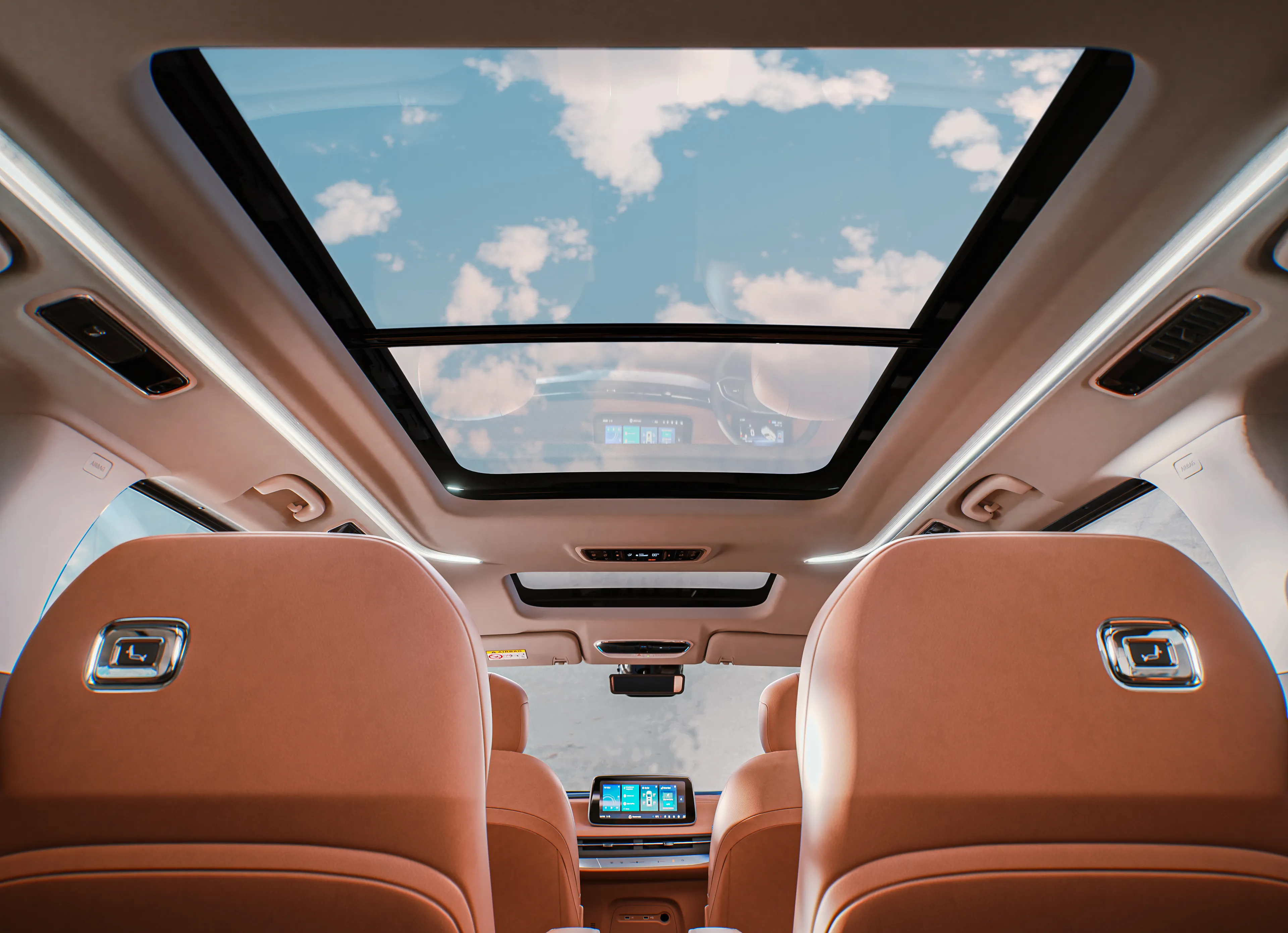 As a fully-electric luxury MPV, it competes with the Kia Carnival and Toyota Vellfire, offering EV efficiency and plush amenities for ₹50‑60 Lakh less
Its commanding dimensions (≈ 5.2 m length, 3.2 m wheelbase) and chauffeur-focused layout aim to redefine premium travel for Indian elites
Final Take for CarTopNews
The MG M9 Presidential Limo stakes a bold claim as India’s first fully-electric luxury limousine. With its sumptuous cabin, long-range EV powertrain, and raft of high-end features, it undercuts traditional rivals while offering unprecedented value in a high-status package.
As a fully-electric luxury MPV, it competes with the Kia Carnival and Toyota Vellfire, offering EV efficiency and plush amenities for ₹50‑60 Lakh less
Its commanding dimensions (≈ 5.2 m length, 3.2 m wheelbase) and chauffeur-focused layout aim to redefine premium travel for Indian elites
Final Take for CarTopNews
The MG M9 Presidential Limo stakes a bold claim as India’s first fully-electric luxury limousine. With its sumptuous cabin, long-range EV powertrain, and raft of high-end features, it undercuts traditional rivals while offering unprecedented value in a high-status package.